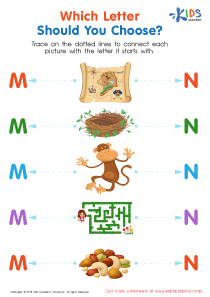Lowercase/Small Letters Worksheets for Ages 6-7
23 filtered results
-
From - To
Discover our comprehensive collection of Lowercase/Small Letters Worksheets tailored for ages 6-7. Designed to build foundational literacy skills, these engaging activities help young learners master the alphabet and improve their writing prowess. Each worksheet offers fun exercises and powerful visual aids that encourage kids to recognize, trace, and write every lowercase letter. Ideal for both classroom and home learning, these printables boost confidence and spark interest in reading and writing. Support your child's educational journey with these essential tools, ensuring they're well-prepared for more advanced literacy challenges ahead. Explore and download today for endless learning fun!
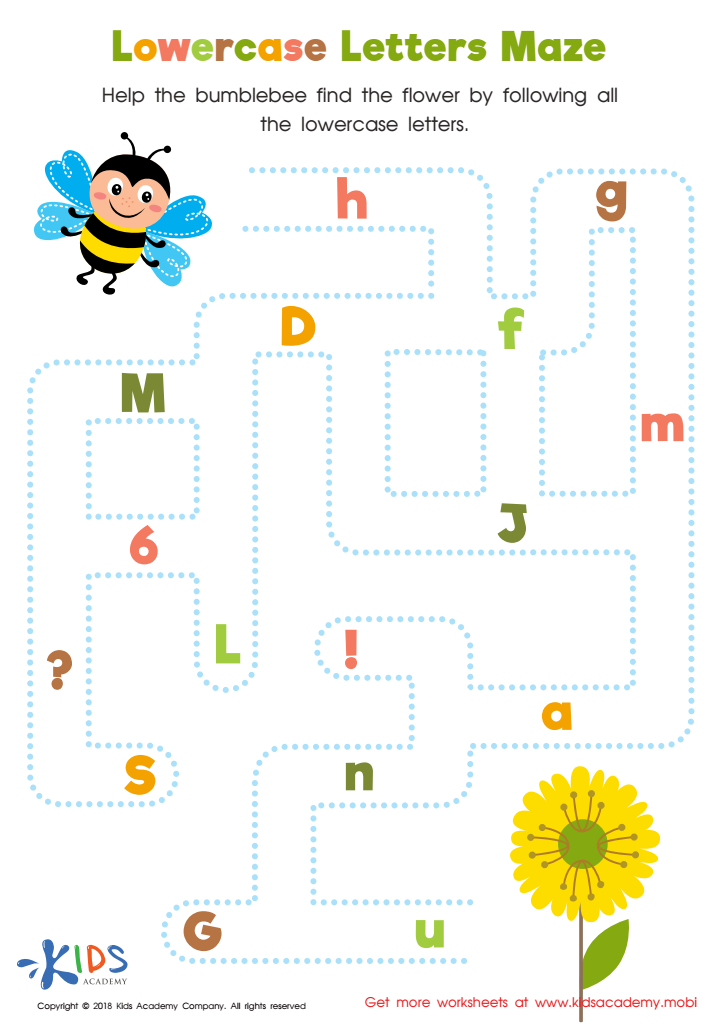

Lowercase Letters Maze Worksheet
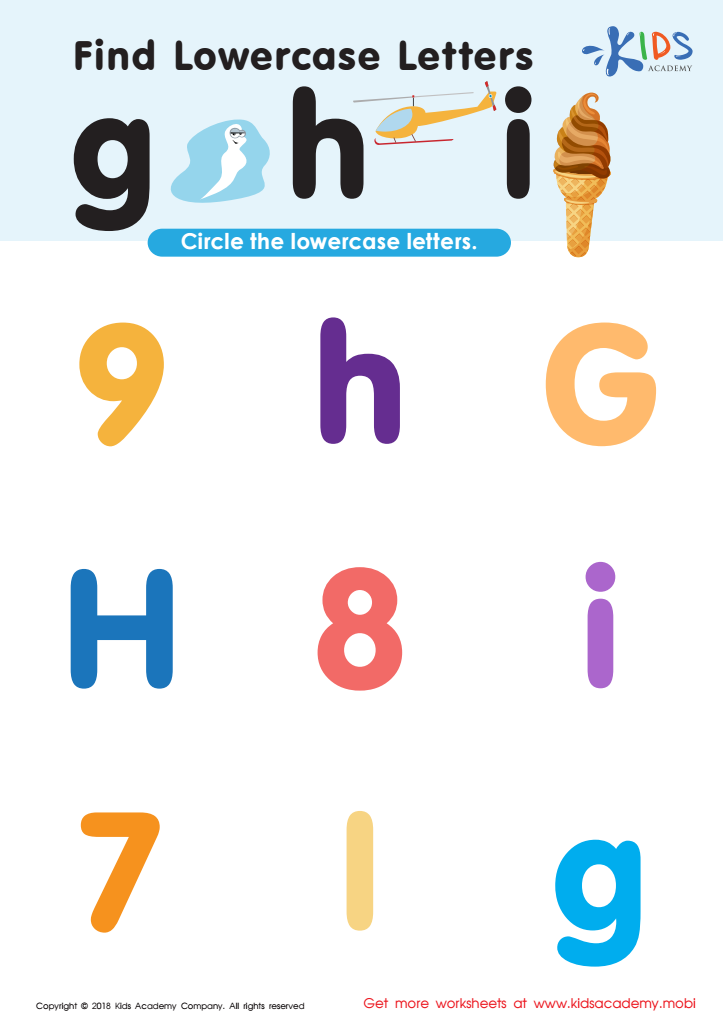

Find Lowercase Letters g h i Worksheet
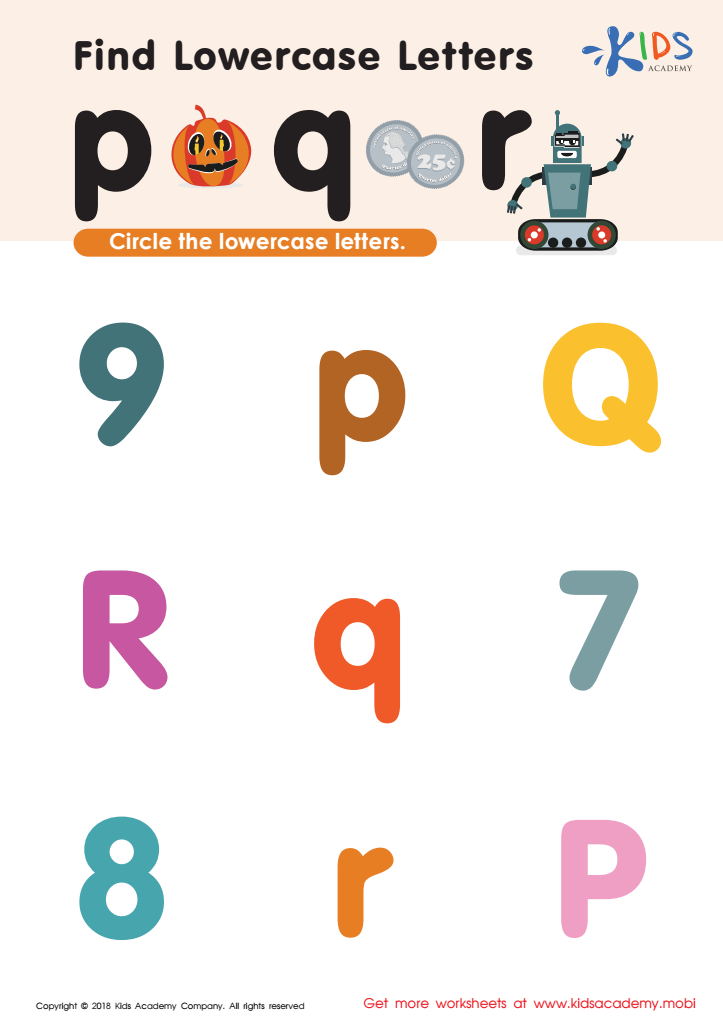

Find lowercase Letters p q r Worksheet
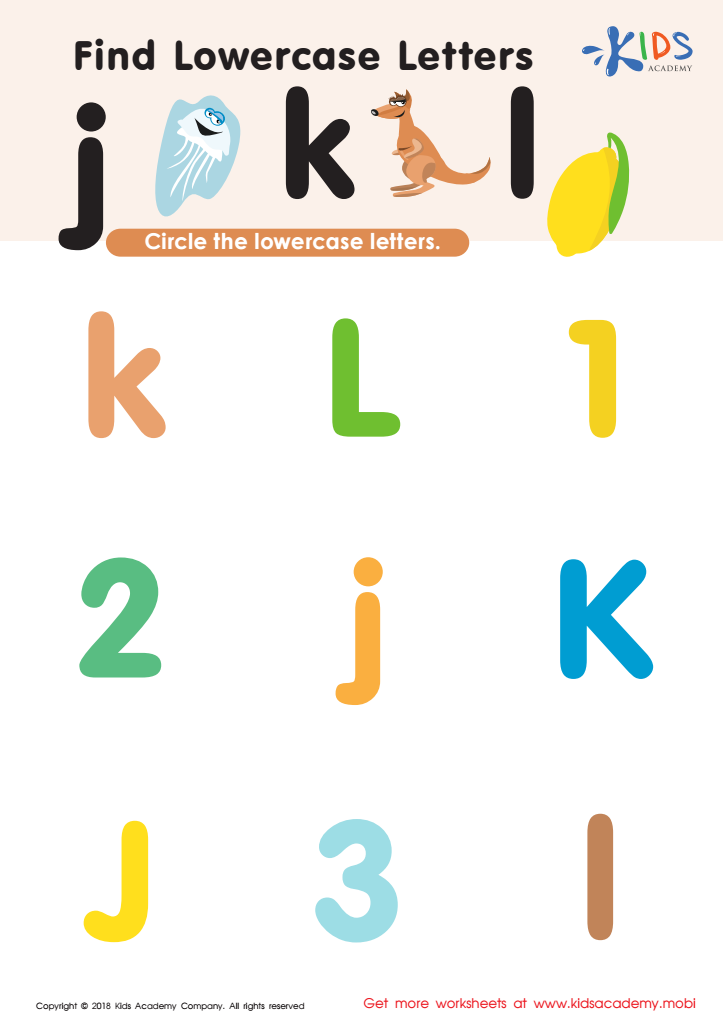

Find Lowercase Letters j k l Worksheet
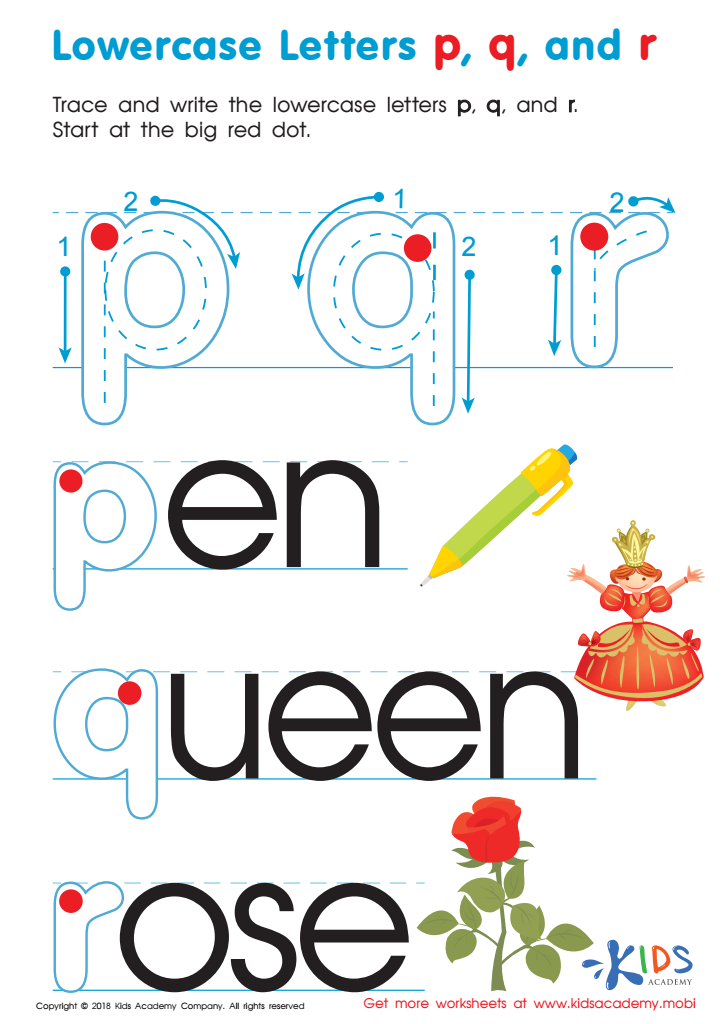

Lowercase Letters p q r Worksheet
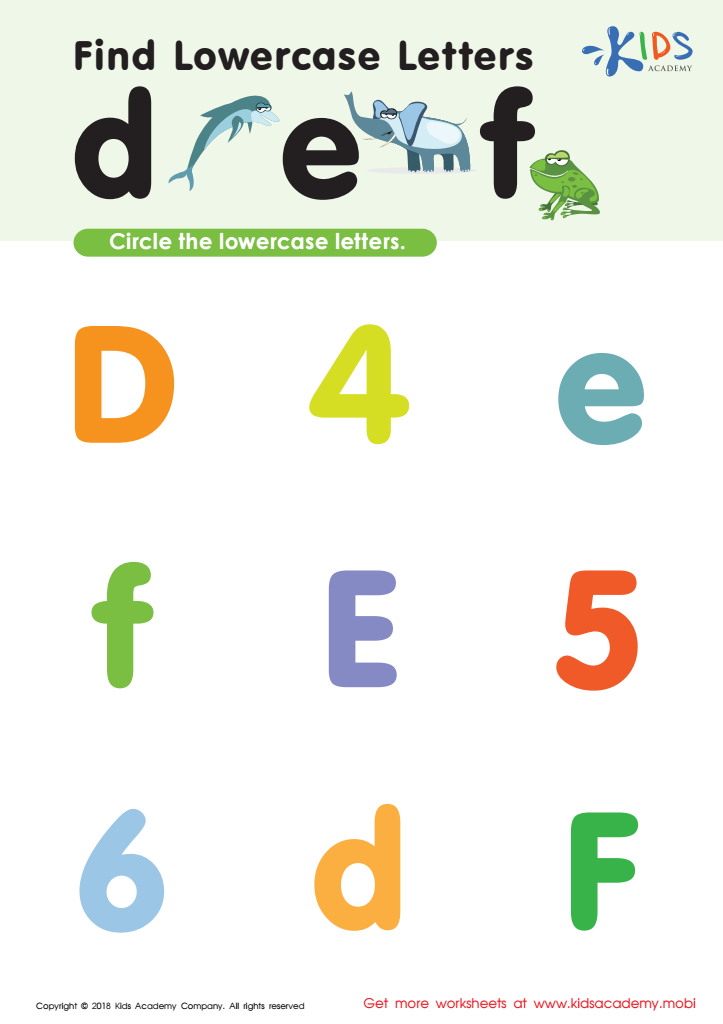

Find Lowercase Letters d e f Worksheet
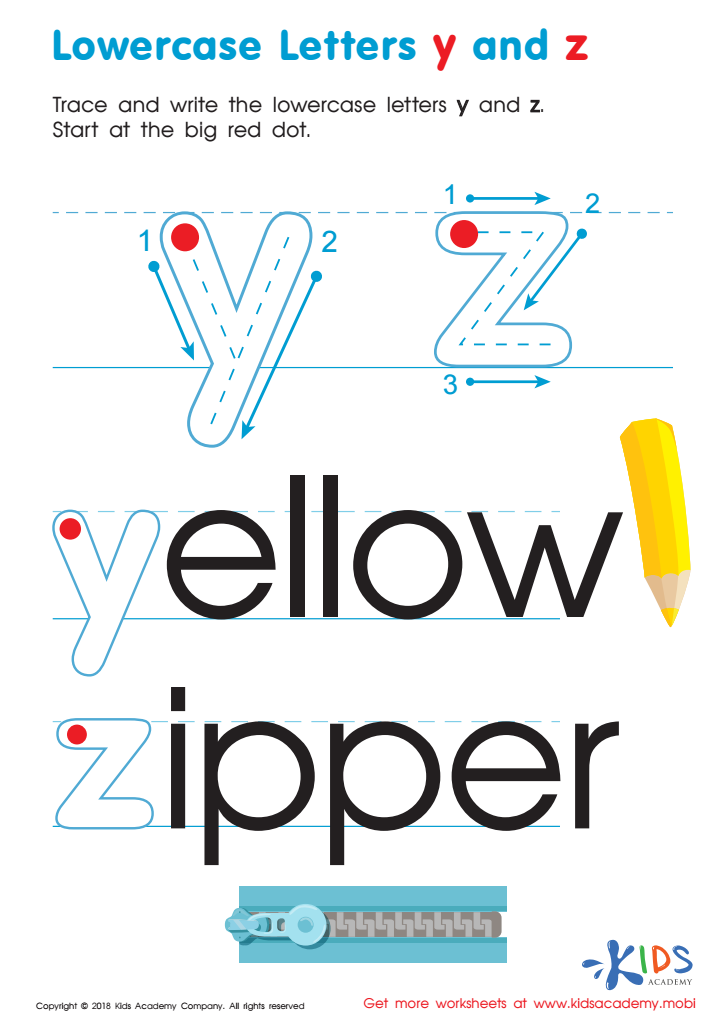

Lowercase Letters y z Worksheet
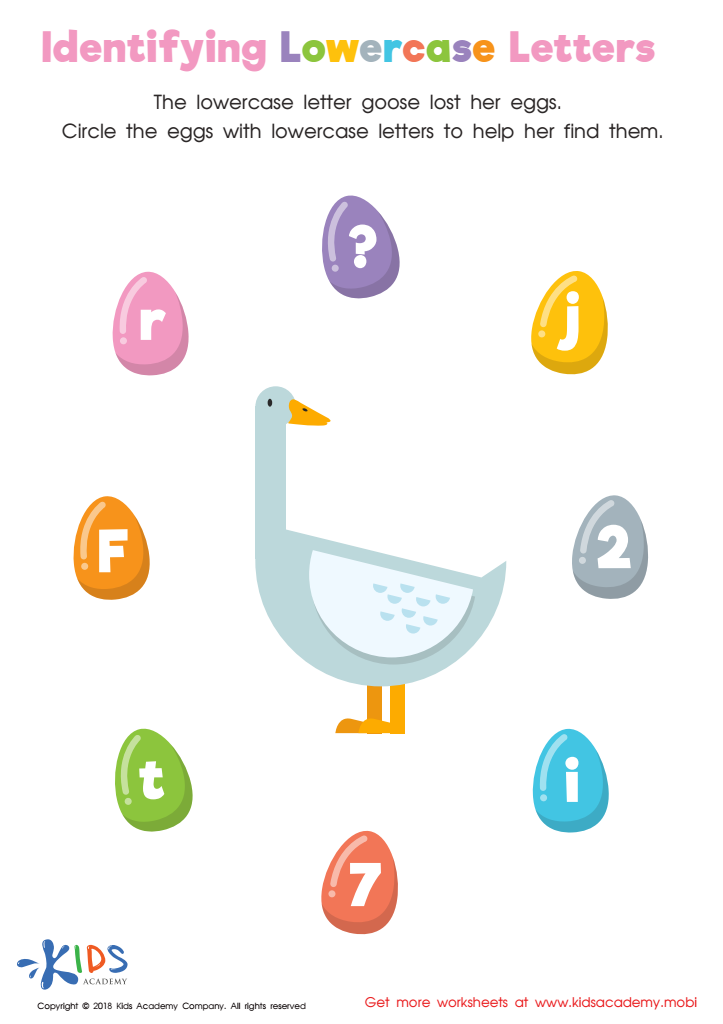

Identifying Lowercase Letters Worksheet
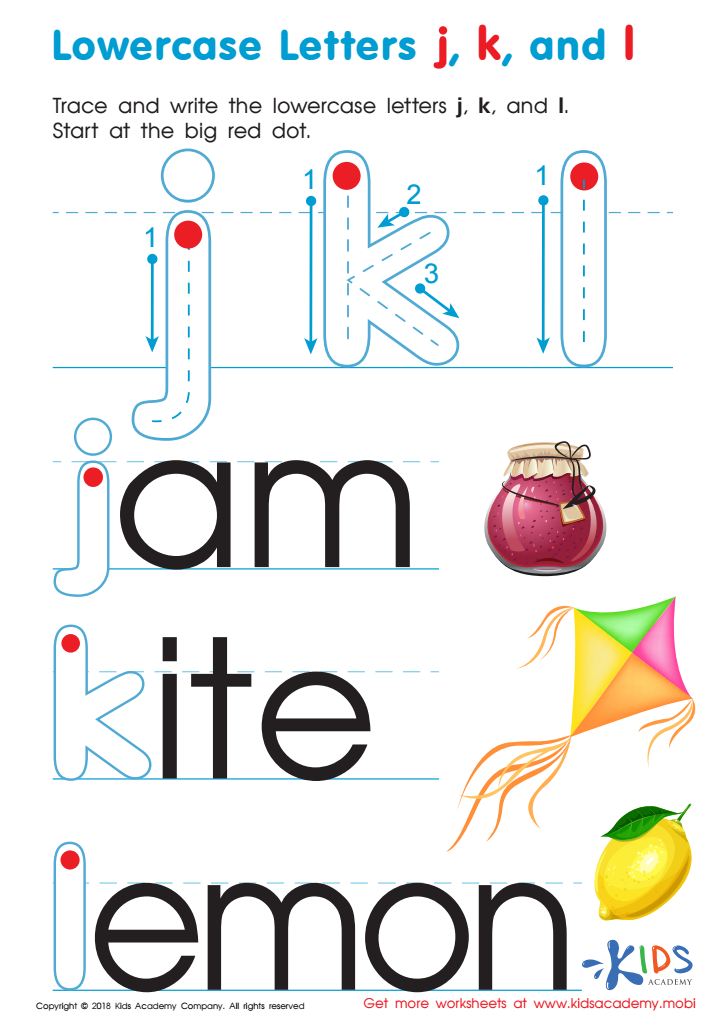

Lowercase Letters j k l Worksheet
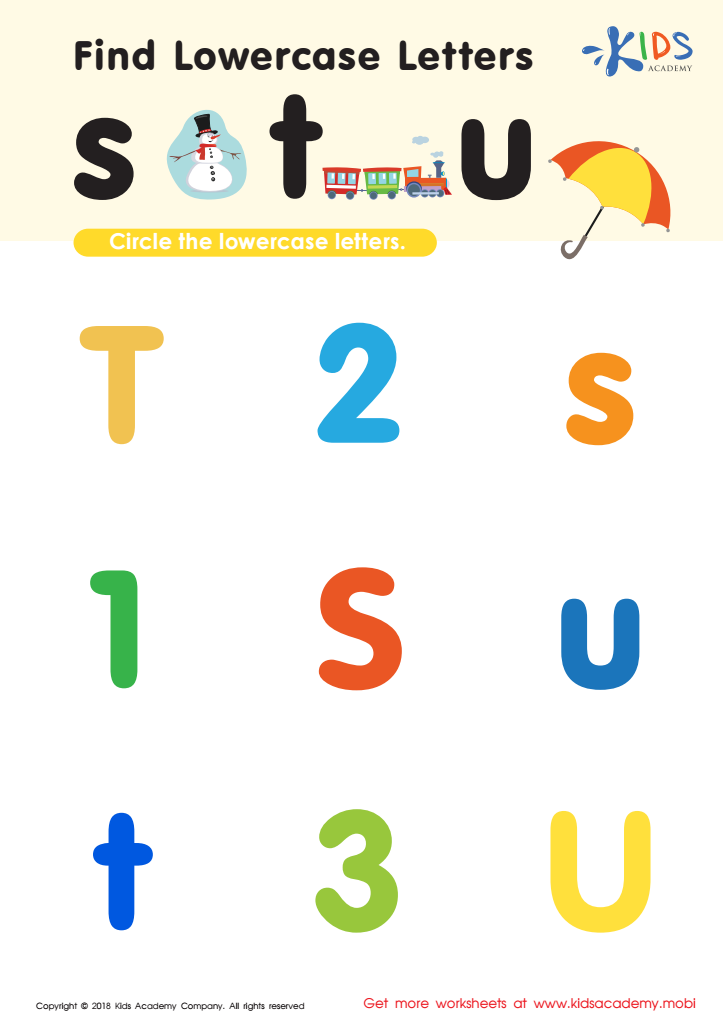

Find lowercase Letters s t u Worksheet
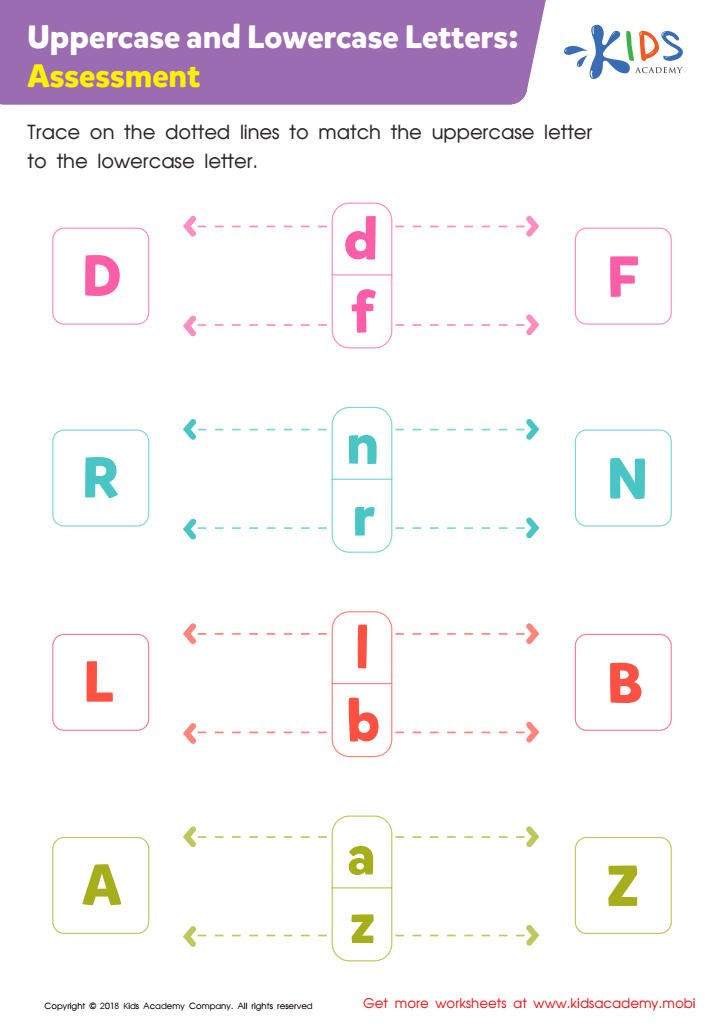

Uppercase and Lowercase Letters: Assessment Worksheet
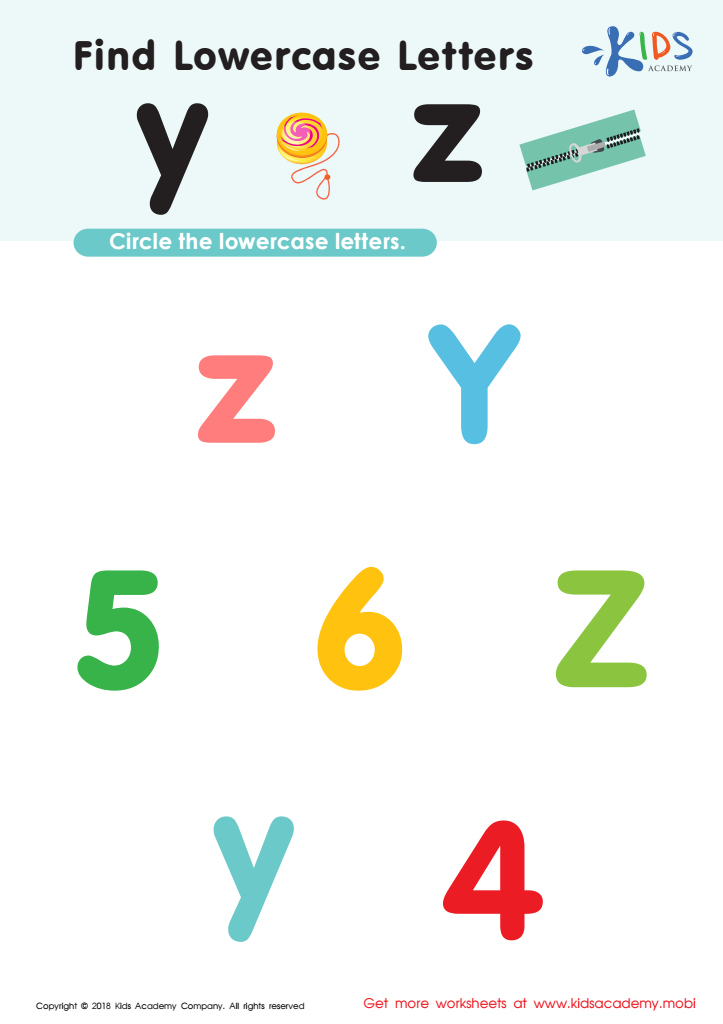

Find Lowercase Letters y z Worksheet
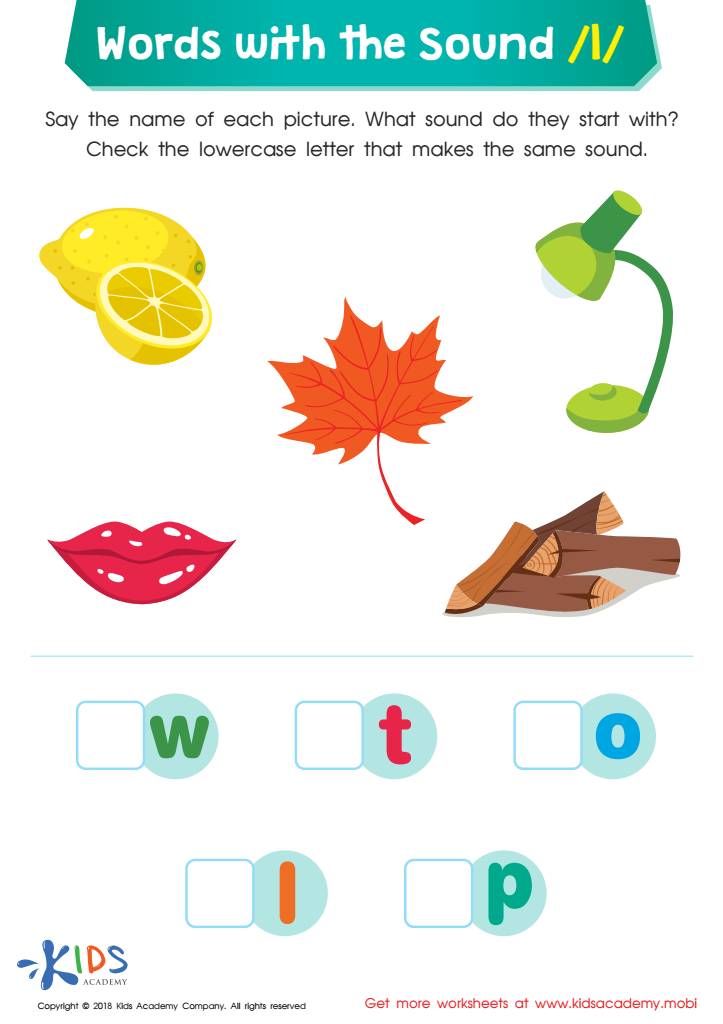

Words with Sound L Reading Worksheet
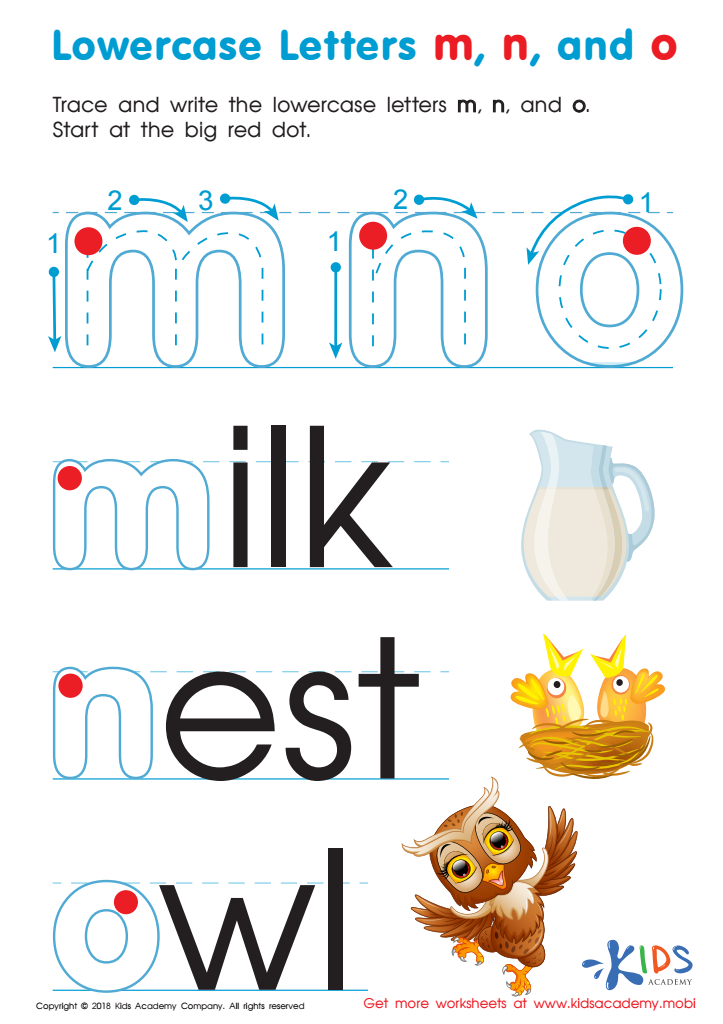

Lowercase Letters m n o Worksheet
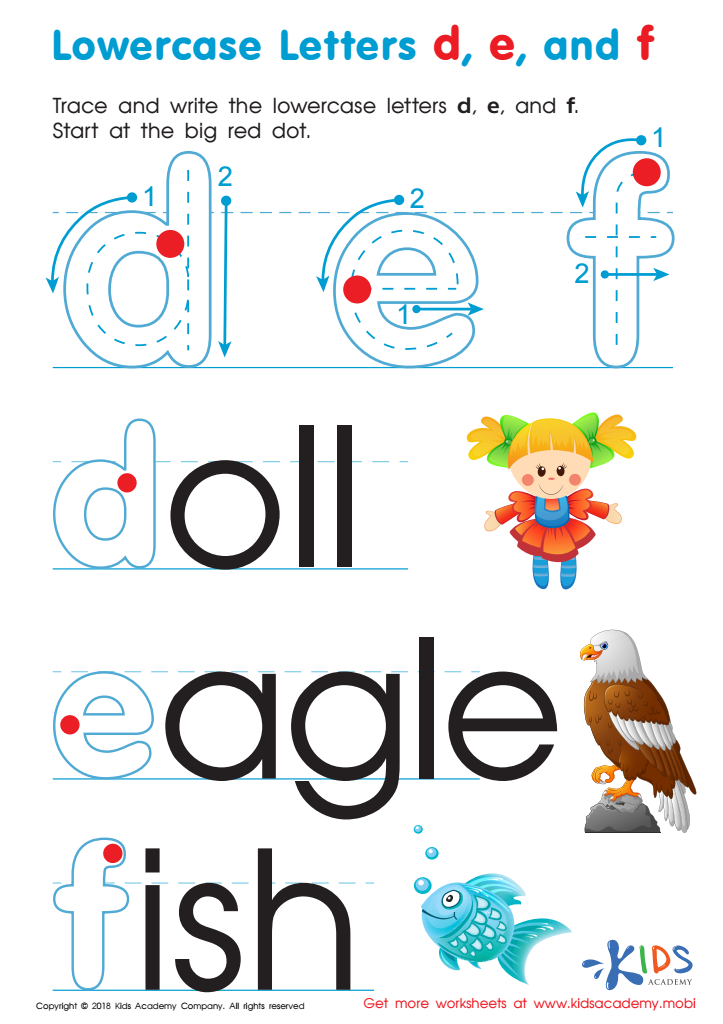

Lowercase Letters d e f Worksheet
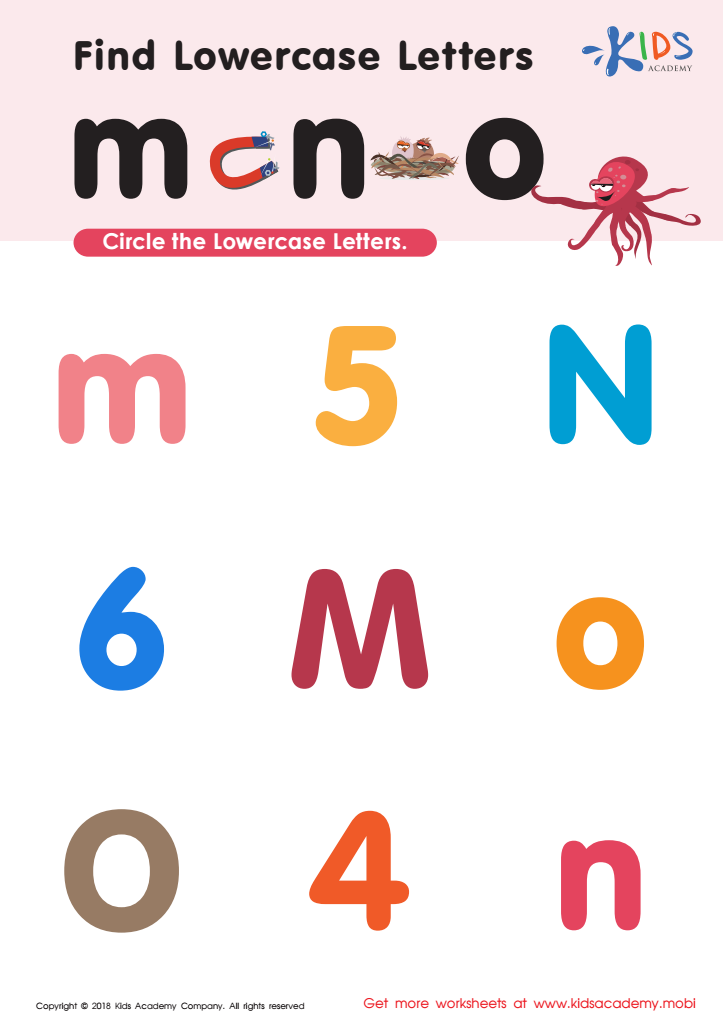

Find Lowercase Letters m n o Worksheet
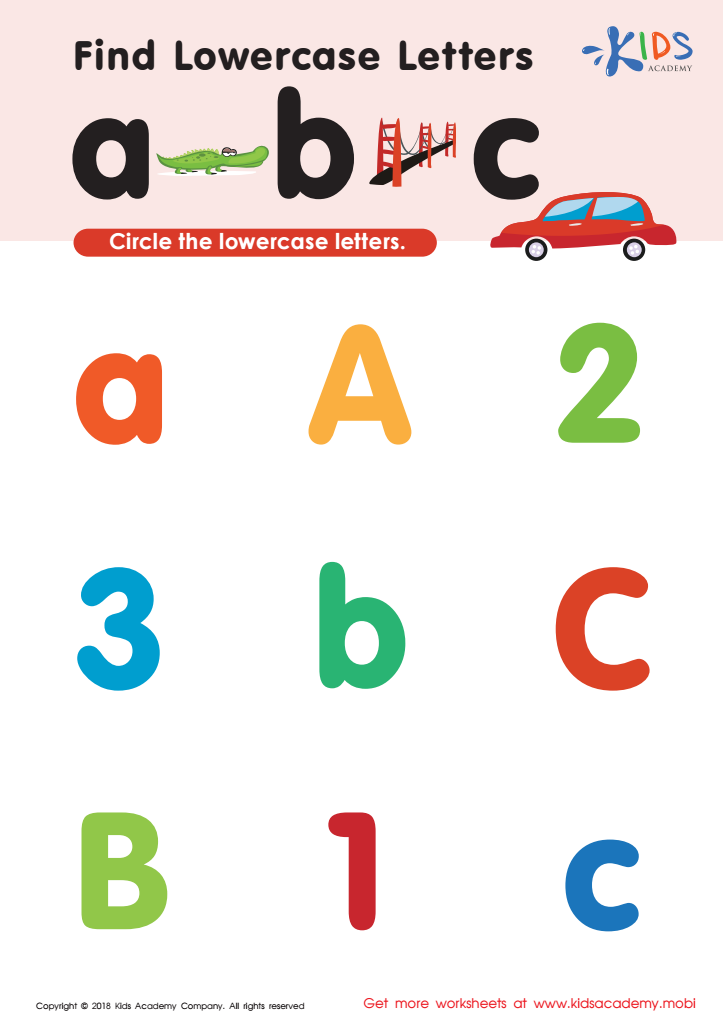

Find lowercase letters a b c Worksheet
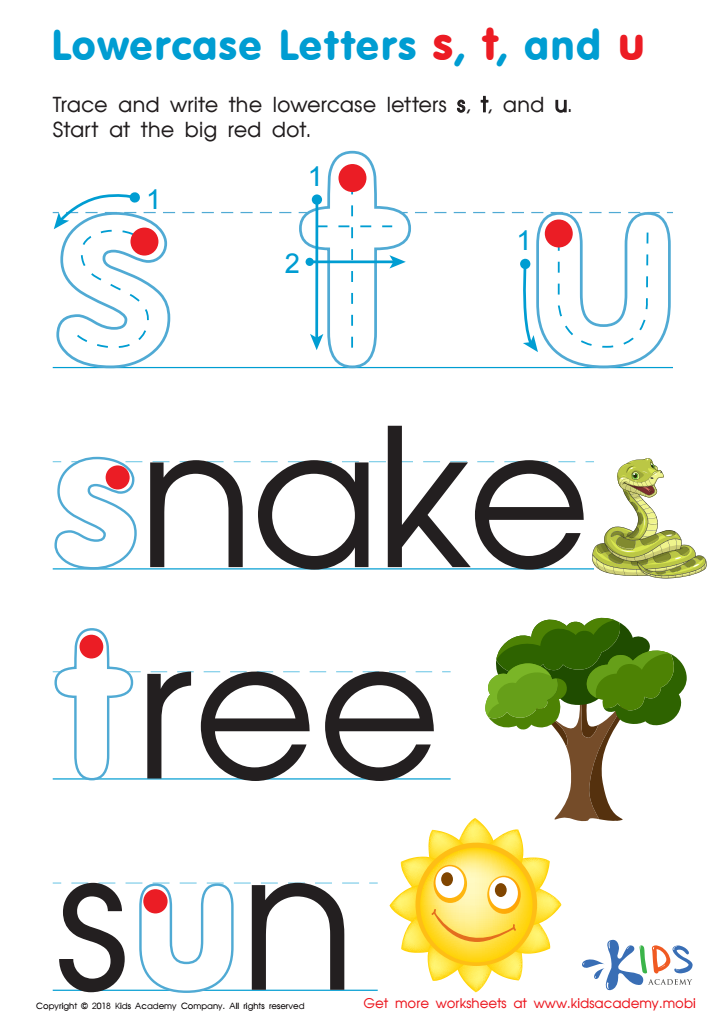

Lowercase Letters s t u Worksheet
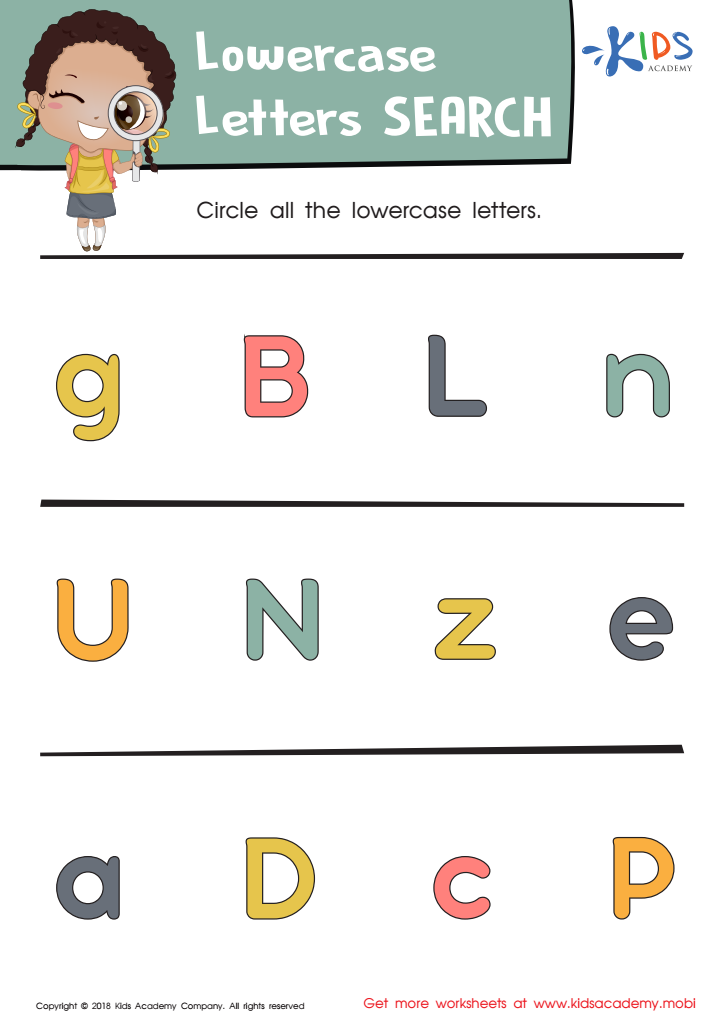

Lowercase Letters Search: Assessment Worksheet
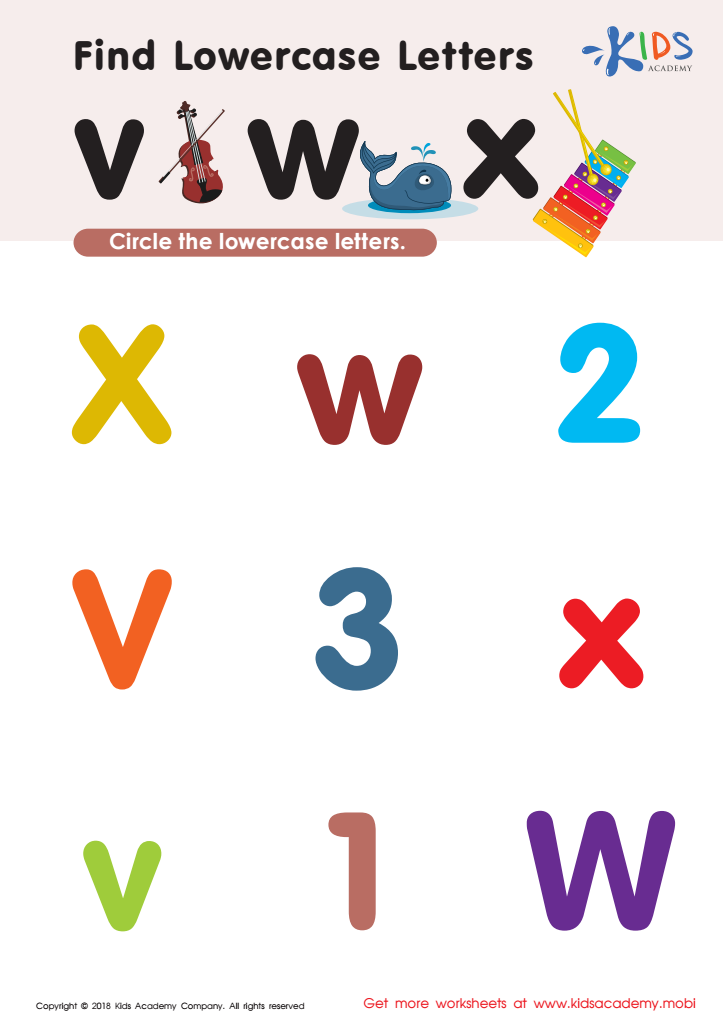

Find Lowercase Letters v w x Worksheet
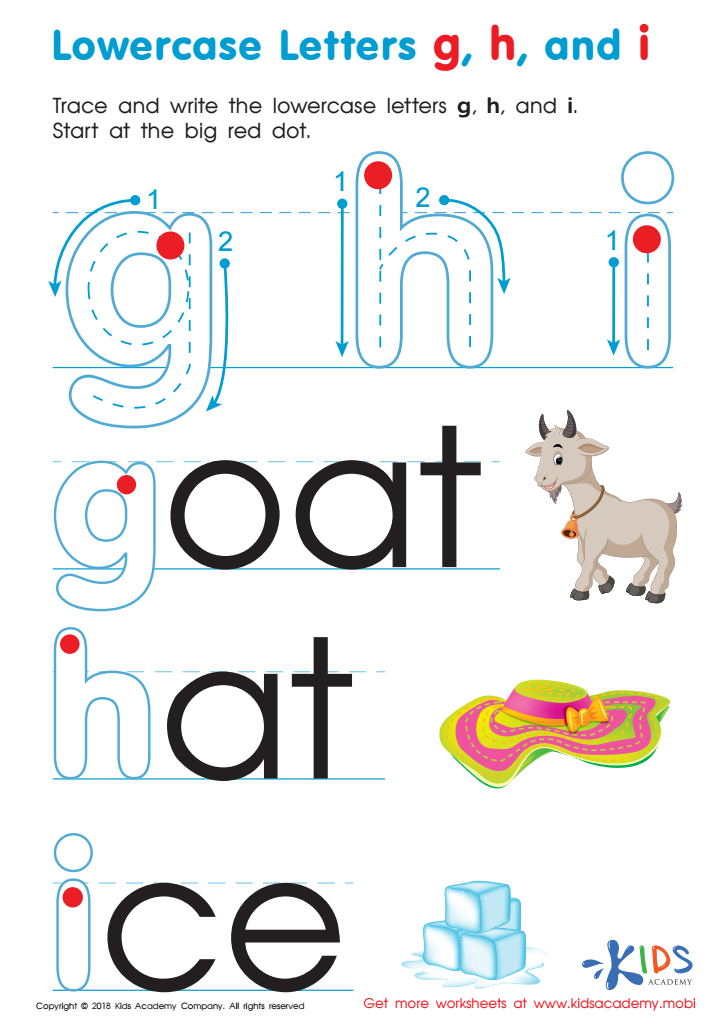

Lowercase Letters g h i Worksheet
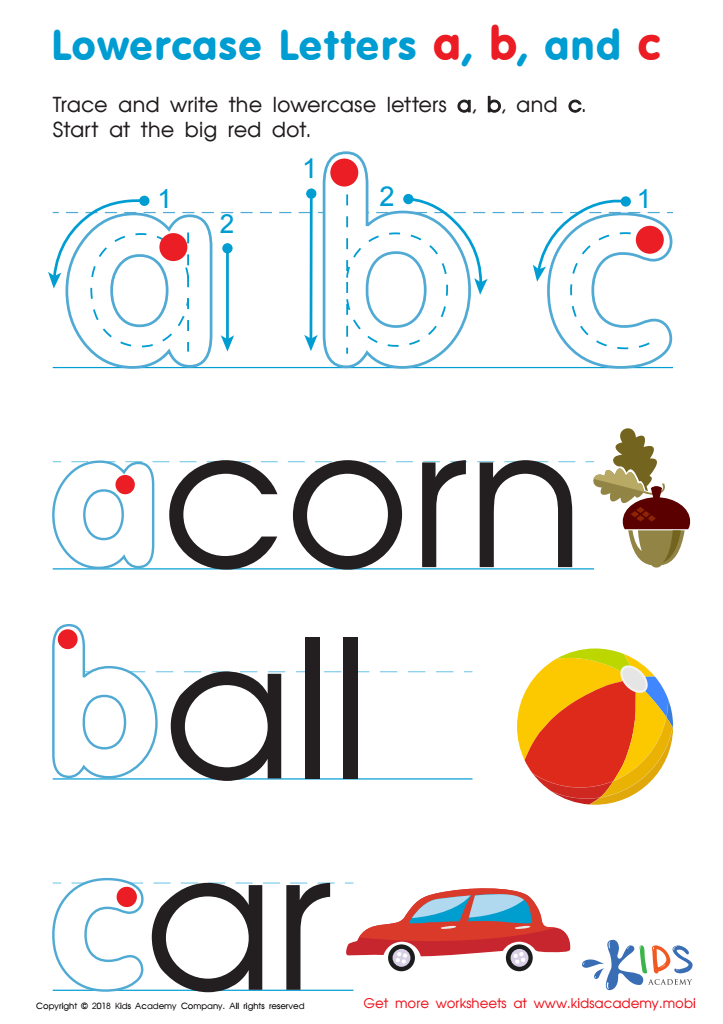

Lowercase Letters a b c Worksheet
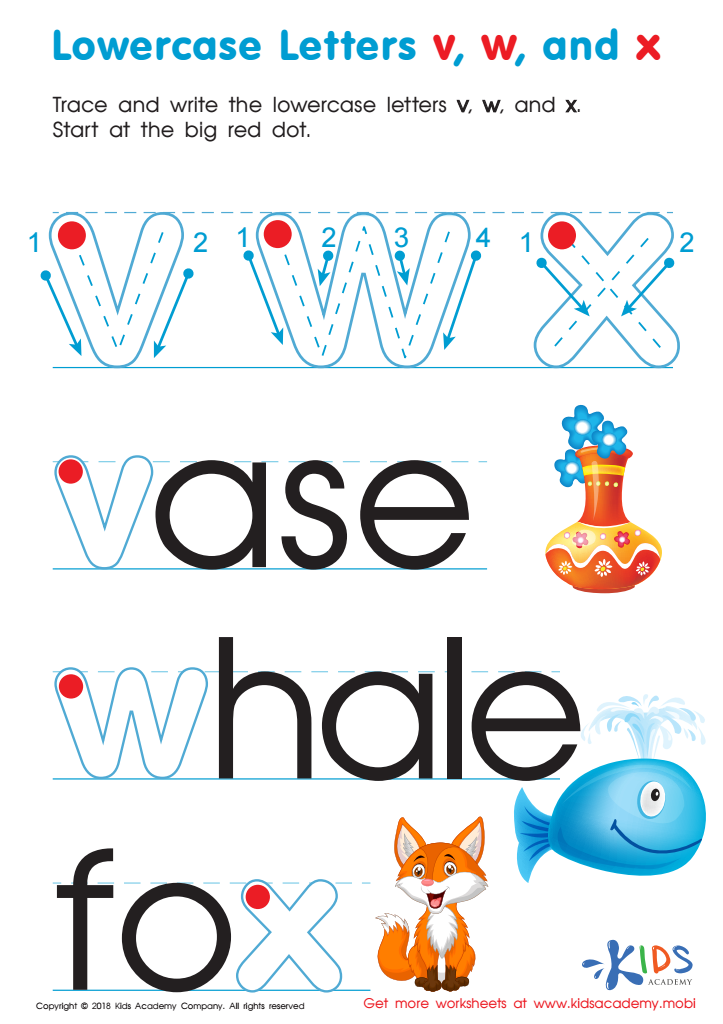

Lowercase Letters v w x Worksheet
Focusing on lowercase or small letters at ages 6-7 is critical for several reasons. At this stage, children are in the early stages of reading and writing, foundational skills that influence their educational journey. Lowercase letters make up the majority of text that children will encounter in books, articles, and on digital platforms. Familiarity with these letters enhances reading fluency, as kids can recognize words swiftly and understand context better.
For writing, mastering lowercase letters is essential for legibility and efficiency. Writing in lowercase is generally quicker and helps children produce neat, readable text, which is crucial for effective communication. Additionally, learning lowercase letters early helps establish good handwriting habits; constant practice leads to better fine motor skills and improved hand-eye coordination.
Another aspect is cognitive development. Decoding text that mostly uses lowercase letters fosters better word recognition and phonemic awareness, which are critical in early literacy. This not only boosts their reading comprehension but builds confidence in young learners as they navigate through more complex material.
By ensuring that children aged 6-7 get adequate practice and guidance in using lowercase letters, teachers and parents set them up for academic success. This early investment pays off by making future learning smoother and less stressful for the children.
 Assign to My Students
Assign to My Students




